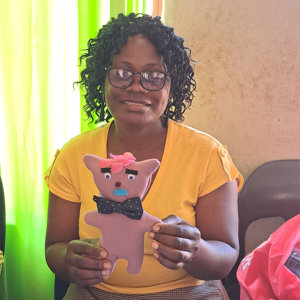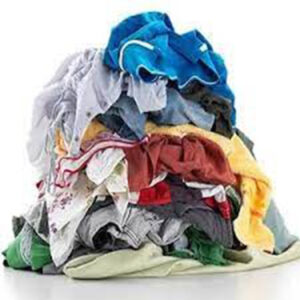Closing the Loop: Transforming textile waste into opportunities for people with disabilities and support for Early Childhood Development

Did you know that it takes 2,700 litres of water to produce a single cotton tee shirt?[i]
And that the fast fashion is one of the highest polluting industries globally, contributing 2 – 8% (about 1,2 billion tons) of greenhouse gases annually – higher than international flight and maritime shipping emissions combined[ii].
In addition to the widespread loss of biodiversity and habitats during the production of raw materials, the industry:
- Produces about 20% of the world’s wastewater[iii],
- 24% of the insecticides and 11% of pesticides that are used globally[iv],
- And is a major contributor to plastic pollution in oceans[v].
At the same time, the average number of times clothes are worn before being thrown away has dropped by 36% over the past 15 years in the United States, China, and other relatively affluent countries. Only 13% of these largely under-utilised clothes are recycled globally leading to an estimated 21 billion tonnes of textiles being sent to landfill each year[vi].
The fast fashion industry is booming and is likely to treble in size by 2050. Clearly, we need to rethink the largely “take – make – and waste” linear business model that is currently typical of this and many other industries. One way to do this is to start supporting the circular economy.
 What are we doing?
What are we doing?
The Endangered Wildlife Trust implements a range of innovative projects to reduce human impacts on biodiversity and habitats, whilst also benefitting the people who live in areas of high conservation value. As part of our 50th celebration, we teamed up with a partner NPO, Clothes to Good, to contribute to the reduction of textile waste generated while empowering people with disabilities and supporting Early Childhood Development (ECD) in Kutama, Limpopo Province. The EWT works extensively with people in this area as they live adjacent to our Medike Nature Reserve in the Western Soutpansberg.
This integrated project incorporates three legs, each of which addresses a key need in rural and peri-urban areas across South Africa, with textile waste being the common thread linking the different activities. Firstly, we aimed to build the capacity of the staff of a centre that provides daycare for children and young people with disabilities called Muthu Ndi Nnyi through training and an opportunity to supplement their financial resources through the sale of high-quality second-hand clothes. Secondly, we provided ECD training and a toy making workshop for staff from ten creches and Muthu Ndi Nnyi. The third leg of the project is to contribute to a reduction of textile waste and encourage upcycling and recycling of these and other materials, both in Kutama and further afield.
Muthu Ndi Nnyi Centre for People with Disabilities
As with many schools and facilities catering for the needs of people with disabilities across South Africa, Muthu Ndi Nnyi lacks many basic resources and regularly experiences financial shortfalls. Many parents cannot afford fees or transport to enable their children to attend the Centre. Food inflation and other costs regularly lead to financial shortfalls, which the staff make up from their own small stipends.
From 28 September – 3 October 2023, Clothes to Good led training and introductory workshops that were attended by 6 – 8 Muthu Ndi Nnyi staff and over 25 teachers and caregivers from creches. Jesse Naidoo from Clothes To Good provided Muthu Ndi Nnyi with basic training in the marketing and sales of clothes which, combined with the bales that were donated, will enable them to test the market and the potential viability of a micro-enterprise in this sector.
To improve the well-being and quality of lives of the young people with disabilities, Tammy Greyling, an occupational therapist from Clothes To Good, met with staff and parents to draw up personal plans for each person in their care to improve their quality of life through improved communication, physical exercise, and specific activities tailored to each of their needs and abilities.
- A wheelchair-bound young man with limited mobility in only one arm and a severe speech and learning disability was able to let his caregivers know that he was hot and needed his jersey removed through a simple gesture. If he is encouraged to continue this and learn additional simple signs, his ability to communicate with others could be vastly improved.
- It was discovered that a second young man with a severe speech impairment and learning disability was able to understand English. His caregivers previously thought he could only understand Tshivenda and were unaware of his self-taught proficiency in English which he gained through watching television and interacting with others.
Early childhood development
The first three years are one of the most important developmental phases of a child’s life. In South Africa, there are still wide disparities in the quality of pre-school education provided to young children across socio-economic classes, exacerbating the learning difficulties that children face when they reach school going age.
As part of this project, we held a two-day workshop for over 30 participants from Muthu Ndi Nnyi, ten local creches, and a centre providing after-school care for vulnerable children. On the first day, Tammy Greyling, Clothes To Good’s occupational therapist, introduced an ECD kit comprising over 50 activities designed to stimulate fine and gross motor skills, perceptual skills, numeracy, and literacy. Each creche and centre received one of these demonstration kits and a training manual which will enable them to reproduce the activities for the 100 – 150 children in each of their care.
On the second day, we held a toy-making workshop to demonstrate making educational toys from recycled materials such as plastic bottle caps, cardboard, old bottles and other containers, old clothes, and other materials. The nursery schools were urged to ‘play-it-forward’ by inviting parents to toy making workshops and ensuring that their colleagues also receive training in the activity kits and toy making.
Where to from here?
This project is an exciting start to a collaborative recycling and environmental awareness outreach initiative in Kutama, building on our existing projects to develop relationships and contribute to environmental and human health beyond the borders of protected areas.
In addition to potentially improving the lives of people with disabilities and those who care for them people from Kutama will benefit through access to high quality clothing at affordable prices, as well as innovative ECD strategies that build the capacity of teachers while preparing young children for school. We are already implementing our innovative, curriculum-aligned Education for Sustainable Development project, the Guardians of the Future, in seven schools in Kutama. Through this, we are working with educators to develop curriculum-aligned interactive teaching aids and resources to stimulate a love of learning and improved understandings of topics that young learners often struggle to understand through textbook-teaching alone. Contributing to literacy, numeracy, and other ECD skills will is a valuable contribution to their future schooling and potential growth.
 What can you do?
What can you do?
- Choose fashion items that will last and ensure that good quality clothes are not thrown away.
- Care for your clothes so that they last longer.
- Support fashion brands that are reducing harmful environmental and social impacts.
- Support fashion brands that are reducing harmful environmental and social impacts.
Patagonia, for example, recently took an almost unprecedented step by committing to channel all its excess profits into a trust dedicated to the protection of the environment and support for communities[vii].
In addition, 200 brands have signed the Fashion Pact, which commits to restoring biodiversity loss, reducing global emissions, and safeguarding oceans[viii].
- Drop off clothes you no longer wear at H&M, who are supporting Clothes To Good collect clothes to support the above project as well as numerous others.
[i] By the Numbers: The Economic, Social and Environmental Impacts of “Fast Fashion” | World Resources Institute (wri.org)
[ii] Ellen MacArthur Foundation, A new textiles economy: Redesigning fashion’s future (2017)
[iii] UNECE 2018
[iv] https://www.unep.org/news-and-stories/press-release/un-alliance-sustainable-fashion-addresses-damage-fast-fashion
[v] Ellen MacArthur Foundation, A new textiles economy: Redesigning fashion’s future (2017)
[vi] Silvestrii 2021
[vii] https://www.patagonia.com/ownership/
[viii] https://www.cbd.int/article/sustainability-always-in-style#:~:text=End%20of%20life%3A%20Disposal%20of,pollutants%20into%20the%20surrounding%20landscape.
